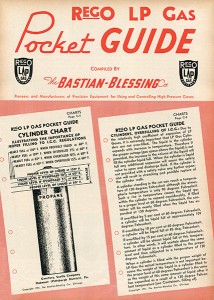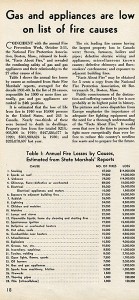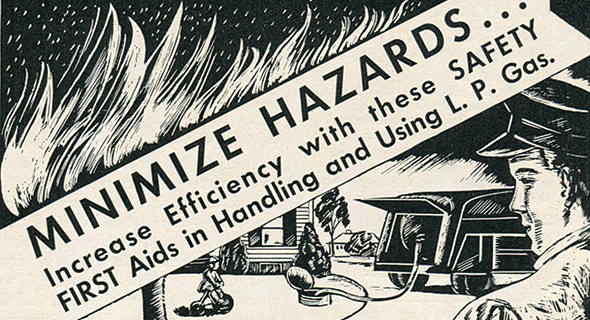Propane safety practices in 1941
Education serves as a component of safety
 Education is a critical component of promoting safety in the propane industry.
Education is a critical component of promoting safety in the propane industry.
Today, education serves as a key to retaining the best safety practices, as retailers are responsible for training their employees, whether in-house and at safety meetings, through their state associations or with industry-sponsored programs. Without safety education, it would be tough for propane marketers to resolve potentially hazardous situations in the field.
Since LP Gas magazine’s inaugural year, 1941, safety education has been important to the propane industry. In 1941, RegO helped to promote propane safety education by releasing its Pocket Guide. Compiled with the help of the Bastian-Blessing Co., the RegO Pocket Guide educated readers on the best practices in the industry. LP Gas magazine ran some of the pages of the Pocket Guide each month. The guide included information on how to do business in the industry safely, explaining how to fill a cylinder properly, how to avoid getting water in an LP gas system and how to check for excess flow on valves. RegO also sold a Pocket Guide binder for readers to save Pocket Guide pages for 50 cents.
RegO says the goal of its Pocket Guide was to help propane marketers increase sales and promote safety.
Industry attentive to propane fires
 When it comes to propane safety, fire is often a concern.
When it comes to propane safety, fire is often a concern.
In honor of Fire Prevention Week Oct. 5-11, 1941, LP Gas magazine analyzed the number of propane- and gas-related fires that occurred during a 10-year time period for its November 1941 issue.
According to estimates from state fire marshals’ reports, gas and gas appliance fires ranked 24th on its list of fire types that caused the most damages. Only 4,000 gas and gas appliance fires were reported between 1931 and 1940, costing about $1.9 million in damages. Despite being ranked lower than other types of fires, the industry remained alert to the possibility of propane-related fires.
As written in a Rochester Criterion Gauges advertisement in the September 1941 issue, “Guesswork has no place in the handling of highly volatile liquids.”

















